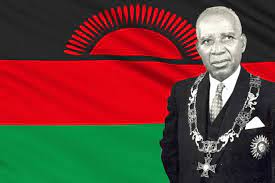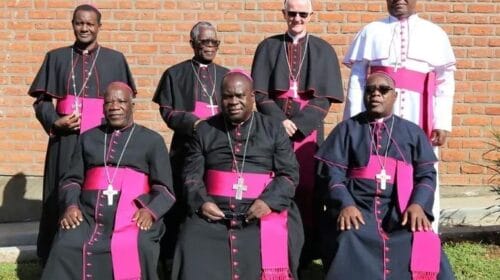Nigeria @59: Time To Review The Quota System By Olabisi Deji-Folutile
The cardinal aim of every academic pursuit, according to the late sage, Chief Obafemi Awolowo, “is to develop the power to think – clearly, correctly, and scientifically.” Nothing could be further from this truth! More often than not, people that obtain sound education are analytical and able to proffer solutions to complex problems. This explains the huge resources some countries devote to providing quality education for their citizens. Such countries, among other things, believe in hard work, and also encourage their best brains to be in charge of their affairs. No room for happenstance.
This is where Nigeria is different. The country operates a quota policy that robs Peter to pay Paul, thus enthroning mediocrity above meritocracy. One of the effects of this absurdity is the continuous sufferings in the land in spite of its rich human and capital resources, to the extent that the country is now named the world’s poverty capital.
While the major reason for formulating the quota policy is to foster even development and unity among the over 300 ethnic nationalities in the country, the evidence on ground, however, shows that the system is not only killing the quest for excellence and distinction in some parts of the country, it is making others to wallow in frustration and giving them a sense of dejection.
In university admission, for instance, 45 per cent of candidates are admitted based on merit, 35 per cent based on catchment area while 20 per cent of the space goes to educationally less developed states. In other words, only 45 per cent of slots in public universities are merit-based in the true sense of the word. Other considerations apart from merit determine those that get the remaining 55 per cent slots.
The situation is worse in Federal Government-owned secondary schools referred to as unity schools. In these schools, some candidates don’t need more than between four and 10 marks over 300, to gain admission, while others are required to score as high as 139 to get a slot. The cut-off marks for male pupils from Yobe and Zamfara states in the 2018/2019 session, for example, were mere two and four points respectively. Likewise, a male candidate from Taraba State only needed three points out of 300 to gain admission, whereas the minimum score for any pupil from Anambra State was pegged at 139 in the same exam.
Indeed, a cursory glance at the cut-off figures for admission to unity schools in the 36 states of the federation and the Federal Capital Territory for 2018 is likely to make many shed tears. They include Abia 130; Adamawa 62; Akwa-Ibom 123; Anambra 139; Bauchi 35; Bayelsa 72; Benue 111; Borno 45; Cross River 97; Delta 131; Ebonyi 112; Edo 127; Ekiti 119; Enugu 134; and Gombe 58.
Others are Imo 138; Jigawa 44; Kaduna 91; Kano 67; Katsina 60; Kebbi 9 (male) 20 (female); Kogi 119; Kwara 123; Lagos 133; Nasarawa 58; Niger 93; Ogun 131; Ondo 126; Osun 127; Oyo 127; Plateau 97; Rivers 118; Sokoto 9 (male) 13 (female); Taraba 3 (male) 11 (female); Yobe 2 (male) 27 (female); Zamfara 4 (male) 2 (female) and FCT Abuja 90.
Sadly, candidates that scored four over 300 in this exam are likely to form the bulk of the 55 per cent of people admitted to public universities based on considerations other than merit. It does not end there. They are also likely to join the nation’s civil service; the Nigerian National Petroleum Corporation; the Central Bank of Nigeria; and other cash cow Federal Government agencies. To put it simply, such people eventually become the nation’s decision makers and policy formulators, making the country to be governed by its weakest. In all of this, Nigerians keep expecting that people that couldn’t cope with the rigours of learning would suddenly develop the capacity to formulate policies that will put the country on the path of development. This is impossible!
Truth be told, Nigeria cannot continue to operate a quota policy, skewed in favour of some people, and expect good governance and development. The general consensus of opinion in countries where quota system is practised is that it should be discarded. In Malawi, for instance, quota system has remained a contentious policy, same for India and Pakistan. In these countries, there is a growing public clamour for the populace to go to school and work based on their qualifications and abilities rather than where they come from. This is because they have realised that quota system is discriminatory in nature.
When an inferior candidate is considered above a more qualified person just because government wants to create a balance, striving for excellence becomes meaningless. Getting outstanding leaders is also a challenge when merit is relegated to the background in government recruitment process.
Quota system is no longer in the overall interest of Nigeria. It will be in everybody’s best interest if the Federal Government can abolish it once and for all. Entry to Federal Government-owned institutions should be based on merit. Allow all students to compete fairly and justly. The decision to be educated should be determined by a student’s knowledge, skills and capability and not religion, state of origin or geographical location.
We cannot continue to force education on those that are not interested in learning and deprive other willing citizens of their chance all in the name of quota system. That is unjust. State governments should be saddled with the responsibility of narrowing education gaps in their areas.
Take it or leave it, sound education remains the bedrock of social, political and economic development. This country is going nowhere unless it takes a bold step to institute functional education that makes Nigerians think properly.
The time is ripe for the brilliant ones to be in charge of Nigeria. We can’t keep lowering standards, compromising excellence and at the same time, expect to make progress. We need some levels of intelligence to think properly, clearly, correctly and scientifically, as rightly noted by the late sage.
Olabisi Deji-Folutile is a member of the Nigerian Guild of Editors. Email: [email protected]





